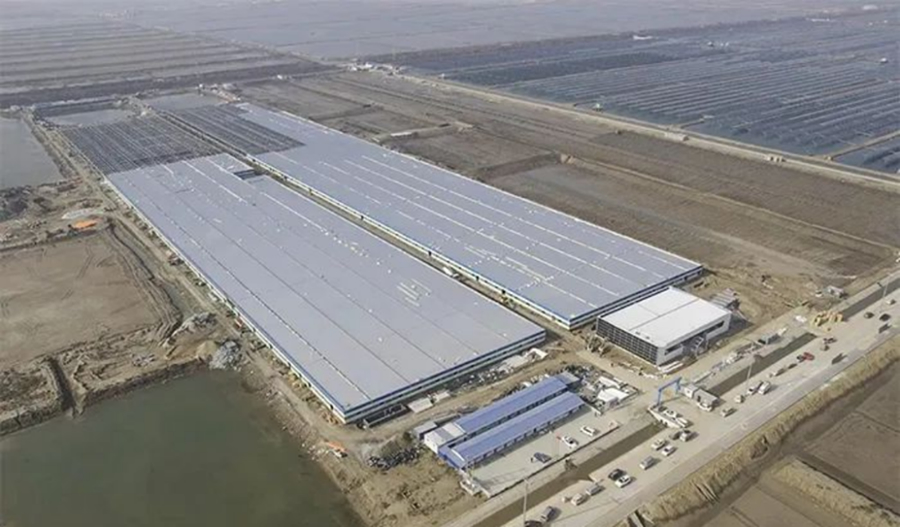July 5, 2023
'Photovoltaic-aquaculture' concept takes shape in China with Zhongchengtou-Zhengda shrimp farm

Late last year, it was reported that the Zhongchengtou-Zhengda integrated photovoltaic shrimp farm in Dongying, Shandong, was expected to complete construction last January.
The first phase of the project, which involved a ¥350 million investment, has about 50,000 cubic meters of industrialised breeding waters, with a capacity to breed up to four batches of shrimp a year. This translates to an annual output of 1,600 tonnes of shrimp.
The farm can also generate 30-33 million kilowatt-hours of electricity per year. Furthermore, a 25-year land rental plan enables the farm to reduce carbon dioxide emissions by 820,000 tonnes.
Meanwhile, the design and planning of the second and third phases of the farm had been completed, and construction was planned to start in early 2023.
The farm, also known as the Zhongchengtou-Zhengda BIPV Shrimp Farm Project, is invested in and constructed by Yuanda Caijin Marine Development (Dongying), a subsidiary of Yuanda Caijin Smart Energy.
The BIPV Shrimp Farm Project is characterised by two factors: a large capital investment in the aquaculture sector and the 'photovoltaic-aquaculture' concept.
China's recent history with photovoltaic-based agriculture goes back to 2013 when Tongwei, a major aquafeed producer, ventured into the field. In recent years, as the country modernised its agriculture industry, investments in agricultural park projects have picked up and a public-private partnership model began to emerge.
The development of the photovoltaic-aquaculture sector takes shape in China as the green economy, carbon emission reduction, carbon restriction and carbon neutrality are becoming popular trends. As such, photovoltaic aquaculture is expected to attract large capital investments in the country.
In the area of photovoltaic-based agriculture, an agreement signed between Center International Group and Haid Group last year aims to foster cooperation in the field of solar power generation. Haid Group provides sites and roof resources that can be used for photovoltaic construction and application, while Center International Group offers integrated solutions for the design, construction, operation and maintenance of photovoltaic facilities.
Such cooperation is relevant to the transformation of the Chinese aquaculture industry as increased energy consumption would be an inevitable aspect of growth. Finding cheap, clean energy is therefore important.
In that regard, solar energy is a viable solution for renewable energy sources and would thus support the expansion of Chinese photovoltaic aquaculture.
- David Lim, eFeedLink










